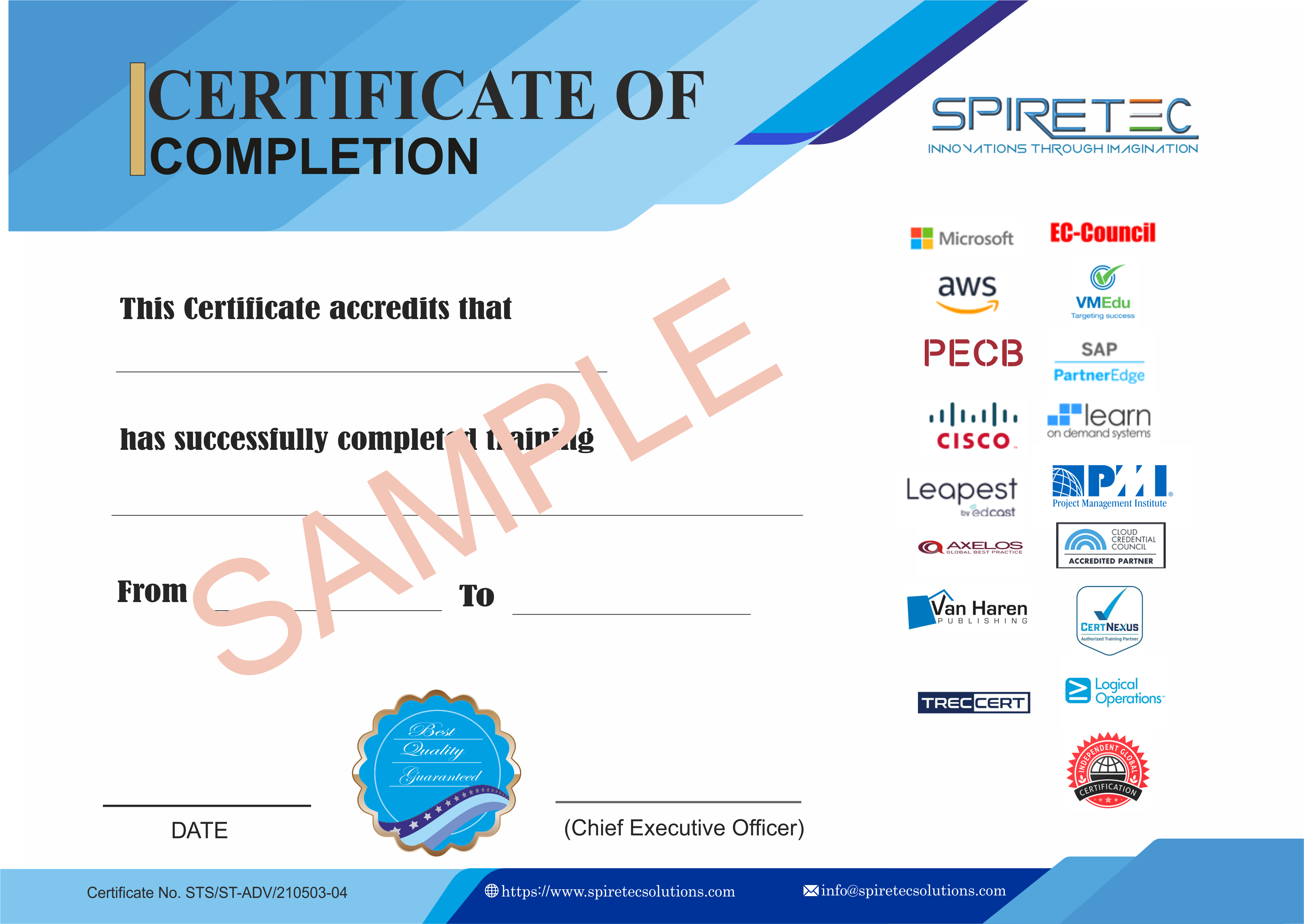The MSP Foundation Examination is designed to assess whether a candidate has sufficient recall and understanding of the MSP programme management framework (as outlined in the syllabus) to be awarded the MSP Foundation qualification.
The MSP Foundation qualification serves as a prerequisite for the MSP Practitioner Examination, which evaluates a candidate’s ability to apply their understanding of the MSP framework in practical contexts.
There are no prerequisites required to take the MSP Foundation qualification.
Target Audience
The MSP (Managing Successful Programmes) Foundation certification is essential for those interested in mastering the management of multiple projects and programs successfully. This certification is ideal for:
-
Programme and Project Managers: Those who need to understand and implement MSP methodologies in their roles.
-
Programme Office Personnel: Individuals working within a programme office who want to gain a deeper understanding of MSP practices.
-
Business Change Managers: Professionals who manage and lead business changes within large-scale projects and programmes.
-
Project and Programme Delivery Team Members: Team members seeking to enhance their effectiveness by aligning with MSP guidance.
The MSP Foundation certification provides foundational knowledge essential for working in large-scale project or programme environments.
Examination Format
-
Question Type: Multiple choice
-
Number of Questions: 60 questions per paper
-
Passing Marks: 36 marks required to pass (out of 60 marks available) - 60%
-
Duration: 60 minutes
-
Exam Conditions: Closed book
Course Outline
1. Understand key concepts relating to programmes and MSP
1.1 Recall the definition of:
1.2 Describe:
-
The characteristics of a programme
-
The common reasons why programme management is used
-
The common challenges that MSP is designed to address
-
The programme environment
2. Understand how the MSP principles underpin the MSP framework
2.1 Explain the MSP principles:
3. Understand the MSP themes and how they are applied throughout the programme
3.1 Explain:
-
The purpose of the programme strategy
-
The purpose of programme governance
-
The purpose of programme plans
-
The Plan-Do-Check-Act (PDCA) cycle and its applicability to risks and issues
3.2 Organization theme
3.2.1 Explain the purpose of the ‘organization’ theme
3.2.2 Describe the key relationships between the ‘organization’ theme and the principles
3.2.3 Explain the purpose of the key documents required to support the ‘organization’ theme:
-
Programme strategy: governance approach
-
Programme strategy: stakeholder engagement approach
-
Stakeholder engagement and communications plan
3.2.4 Define key concepts related to the ‘organization’ theme:
-
Stakeholder
-
Stakeholder engagement
-
Programme risk appetite
3.2.5 Describe the purpose and responsibilities of the following roles:
3.3 Design theme
3.3.1 Explain the purpose of the ‘design’ theme
3.3.2 Describe the key relationships between the ‘design’ theme and the principles
3.3.3 Explain the purpose of the key documents required to support the ‘design’ theme:
3.3.4 Define key concepts related to the ‘design’ theme:
-
Benefit
-
Dis-benefit
-
Vision
-
Programme risk
3.3.5 Describe:
3.4 Justification theme
3.4.1 Explain the purpose of the ‘justification’ theme
3.4.2 Describe the key relationships between the ‘justification’ theme and the principles
3.4.3 Explain the purpose of the key documents required to support the ‘justification’ theme:
3.4.4 Define key concepts related to the ‘justification’ theme:
-
Budgets
-
Cash flow
-
Financial contingency
3.4.5 Describe:
3.5 Structure theme
3.5.1 Explain the purpose of the ‘structure’ theme
3.5.2 Describe the key relationships between the ‘structure’ theme and the principles
3.5.3 Explain the purpose and characteristics of the key documents required to support the ‘structure’ theme:
-
Programme strategy: delivery approach
-
Delivery plan, including the factors to be considered when planning programme delivery
-
Benefits realization plan
-
Programme strategy: resourcing approach
3.5.4 Define key concepts related to the ‘structure’ theme:
3.5.5 Describe:
-
The need to identify and manage dependencies, including the types of dependencies
-
The use of the appropriate modes of delivery
3.6 Knowledge theme
3.6.1 Explain the purpose of the ‘knowledge’ theme
3.6.2 Describe the key relationships between the ‘knowledge’ theme and the principles
3.6.3 Explain the purpose of the key documents required to support the ‘knowledge’ theme:
3.6.4 Define key concepts related to the ‘knowledge’ theme:
-
Knowledge
-
Community of practice
-
Lessons learned
-
Retrospective
3.6.5 Describe:
-
The use of knowledge management and lessons learned in effective programme management
-
The use of information management, including three pillars of information security, in effective programme management
3.7 Assurance theme
3.7.1 Explain the purpose of the ‘assurance’ theme
3.7.2 Describe the key relationships between the ‘assurance’ theme and the principles
3.7.3 Explain the purpose of the key documents required to support the ‘assurance’ theme:
3.7.4 Define key concepts related to the ‘assurance’ theme:
-
Assurance
-
Three lines of defence
3.7.5 Describe:
-
The nature of assurance activities, including the drivers for assurance
-
How to plan successful assurance activities, including the success factors for assurance
-
The need for assurance at multiple levels, including the three lines of defence
3.8 Decisions theme
3.8.1 Explain the purpose of the ‘decisions’ theme
3.8.2 Describe the key relationships between the ‘decisions’ theme and the principles
3.8.3 Explain the purpose of the key documents required to support the ‘decisions’ theme:
-
Programme strategy: decision-making approach
-
Programme strategy: issue resolution approach
-
Programme strategy: risk response approach
-
Decision register
-
Issue register
3.8.4 Define key concepts related to the ‘decisions’ theme:
-
Decision point
-
Risk owner
-
Issue
-
Issue owner
3.8.5 Describe:
-
The importance of data gathering and reporting
-
The role of options analysis to support decisions
-
The generic responses to threats and opportunities
4. Understand the MSP processes and how they are carried out throughout the programme
4.1 Explain the purposes of the processes within the MSP lifecycle:
4.2 Explain the objectives of the MSP processes
4.3 Explain the context of the MSP processe







 Live Online Training (Duration : 24 Hours)
Live Online Training (Duration : 24 Hours)
